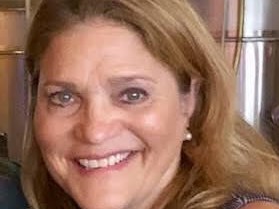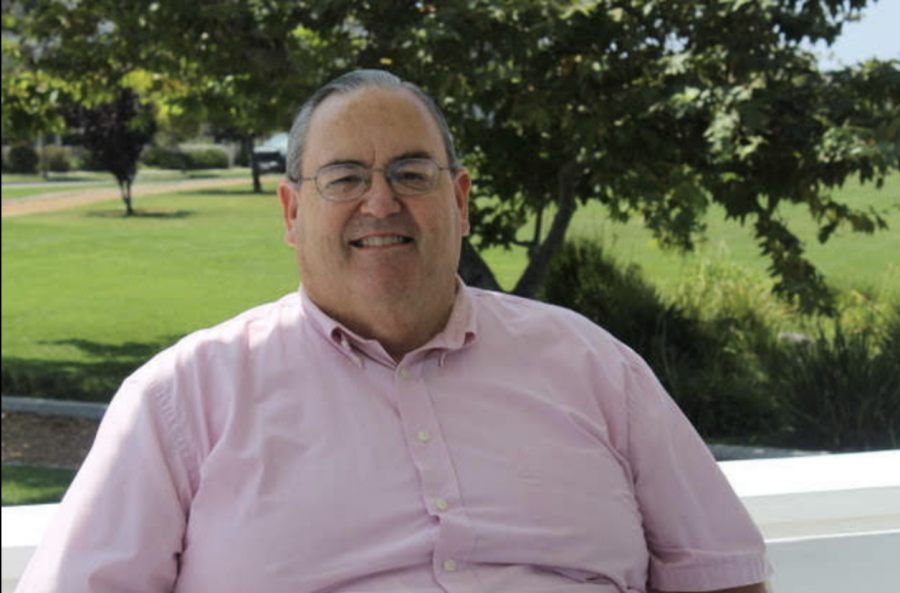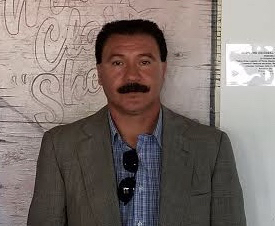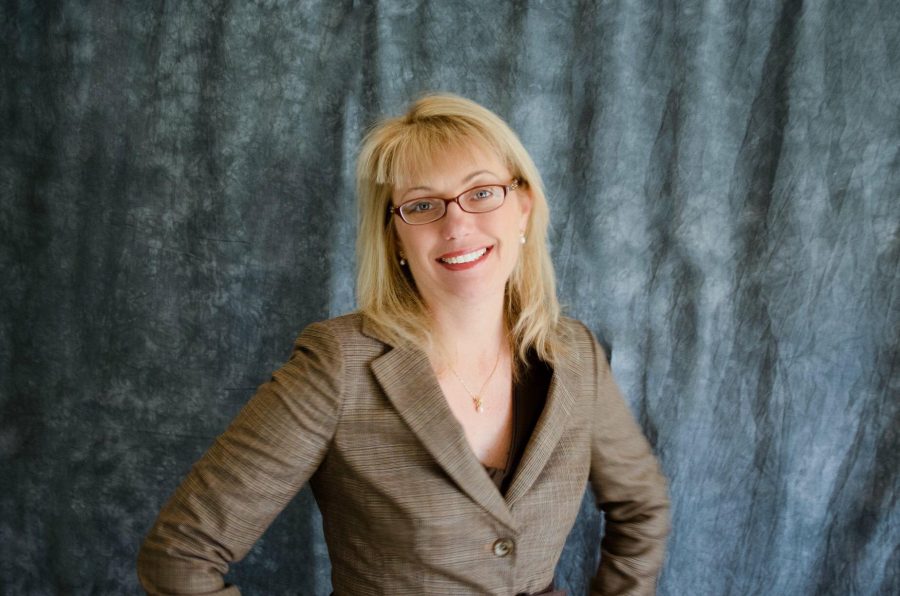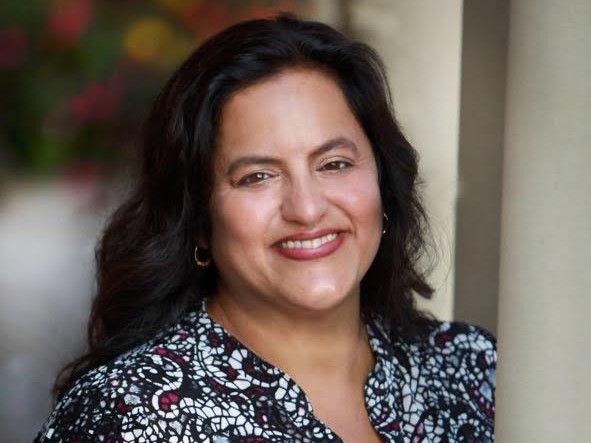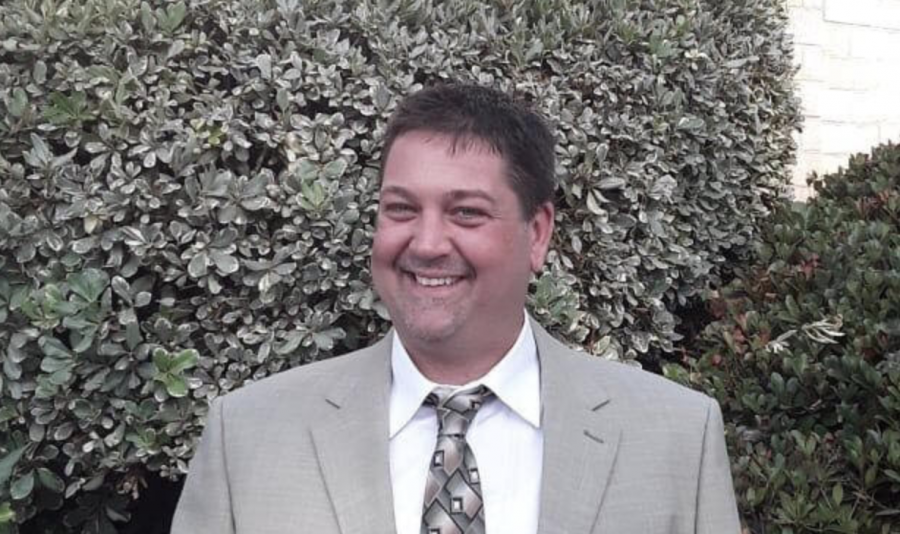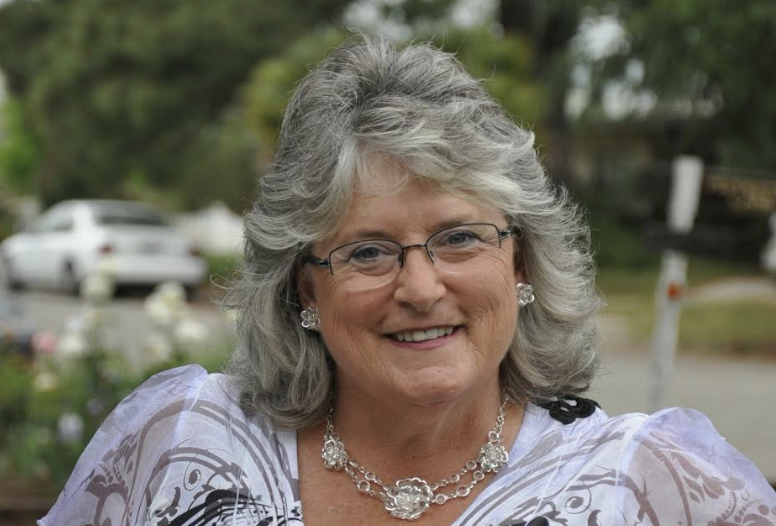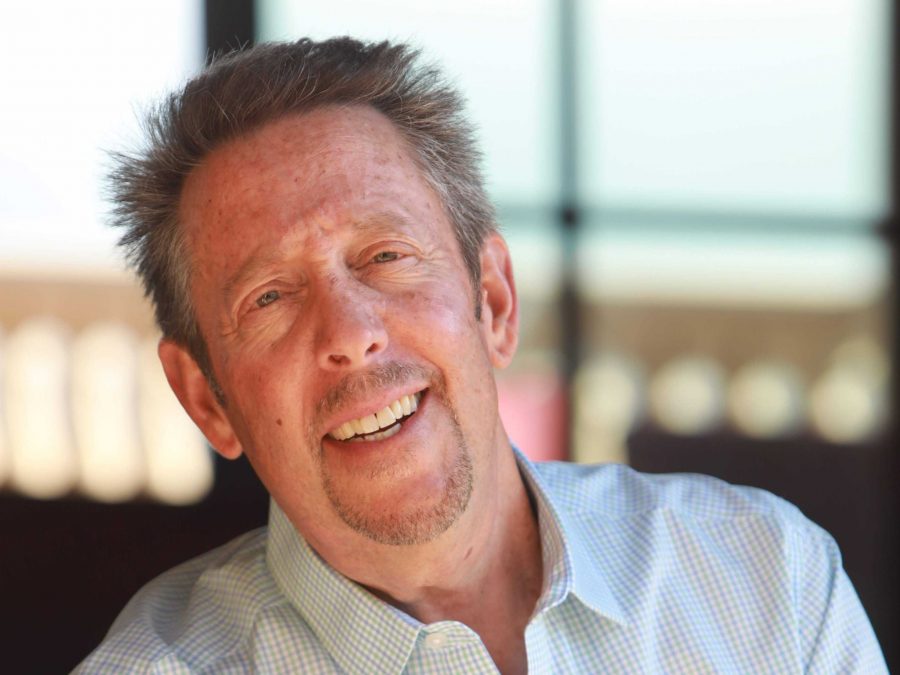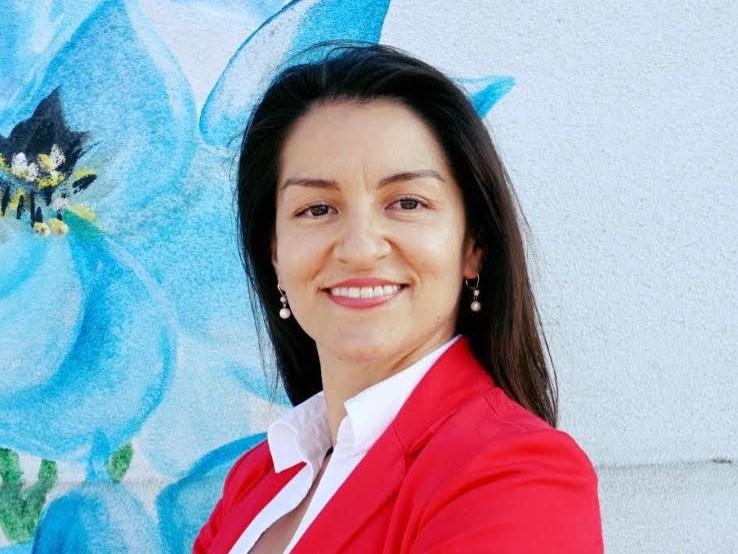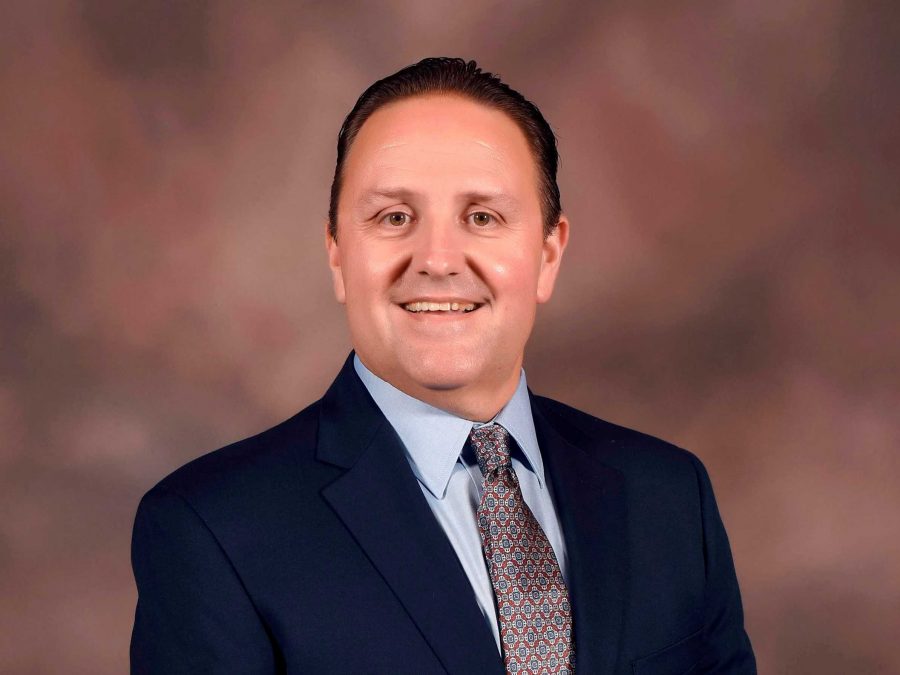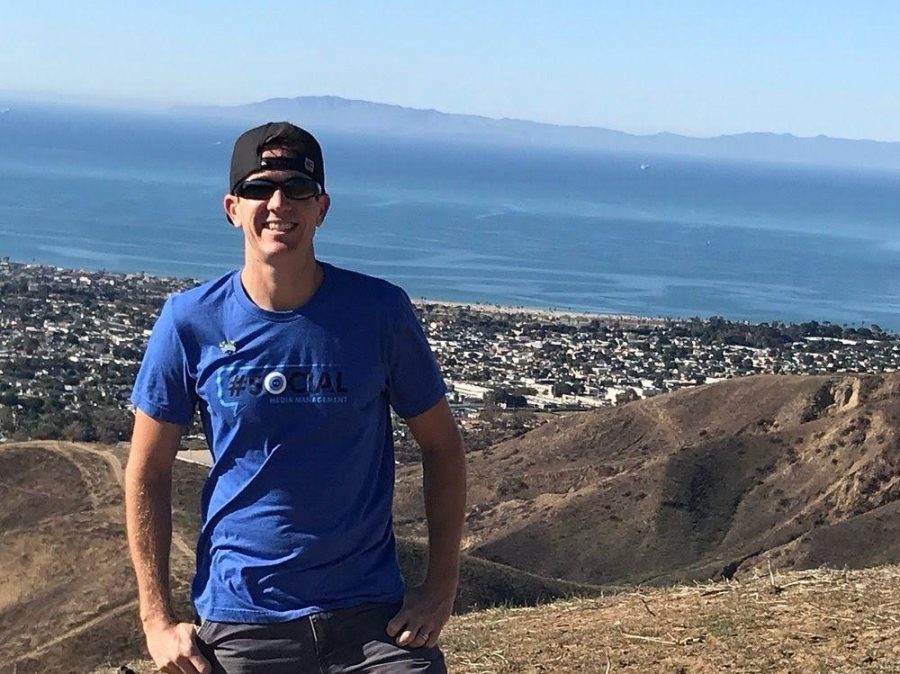INTERVIEWER: What’s your background as a Venturan?
IRENE HENRY: Okay. As a Venturan, well, I’m a State Farm agent. I was also a volleyball coach at both Holy Cross school and at Villanova High School. In my first year coaching, I actually coached for the Ventura City Parks and Recs department and then matriculated up, all the way up, to high school where I coached for approximately 8 years. Let’s see, I’m my own business owner, a State Farm agent for almost 30 years, I’ve been involved with the Westside Community Council as a past president for Rotary which is actually a 4 year commitment in leadership and been involved with the downtown partnership organization because my office, when I relocated from Santa Barbara to Ventura, was located downtown. First on Main Street then later on Santa Clara. I’m also involved with Ventura High School’s Rotary interact program, so we do a lot of civic engagement whether it’s at the City Center and we go there and we do the Easter bunny where we do Easter baskets, or Surfrider clean up. So there’s a lot of different components that come into play and I also hold a law degree so occasionally I’m a guest speaker either at Ventura Community College or one of the high schools because you know, a woman who has her own business, has, you know, a college degree and beyond that is often a source that people, you know, say “Oh do you want to come and speak as a positive female role model.” So that’s kind of a little piece of different pieces of involvement.
INTERVIEWER: Which measure on the ballot are you most passionate about and why should students and their families also support it?
HENRY: Good Question! So one of the things I’m most passionate about is voting for myself and anybody else for Ventura City Council District 1. I’m actually using the information guide here. I am in support of housing assistance programs and bonds to fund existing housing programs so that would be on the state ballot for items 1 and 2. I understand why we would like to repeal the road tax but we need to fix the roads we’re on. Our roads, our bridges, they’re in disrepair and it’s part of our responsibility to have better, safer roads, bridges and not to have that (disrepair), none. Part of the cost of–it’s like you own a home and the roof is only going to last so long, say 30 years. So you have to start putting money away and be prepared to replace that roof in 30 years. Well, it’s the same thing we have to do as the citizens of the state of California or any state. Those roads, we own them, we need to be responsible for them and it’s just part of paying for it. And I do believe that we need some kind of rent control, I just don’t believe this initiative is the right rent control so I’m not in support of that. And those would be the items 1, 2 and 3. 1 and 2 I would be in support of and then the roads, funding the roads and not for the rent control, yet I do think we could do better than the initiative that was drafted and have a better look at how the approach is. So that answers your questions.
INTERVIEWER: Two state propositions that would likely prove to be significantly impactful if passed in the election are Prop 2 and Prop 12. Do you support either, both, or neither of these measures? And why?
HENRY: Okay, so I do support Prop 2 because that was one of the two. And I think it speaks for itself, we have an obligation to work with folks who are homeless. People are homeless for various reasons. Sometimes, they actually choose to be homeless and then there’s the other component where it could be a mental reason or an addiction reason or a combination of the above. So we have, I believe, an ethical and moral reason to work together to make things. So say out of the 100 percent of the folks who are homeless, there’s probably maybe 20, 25 percent that that’s where they want to be. The other 75 percent–having that ethical, moral obligation to work with them–we have to see about getting them to a better place. And I also don’t believe we should do this “band-aid” thing like here’s a free lunch. We should work with folks and people, they’re our people and we should work with them for a long term resolution and I know that we’re going, at least in the city of Ventura for the first time ever sometime in the next 12 months, have a permanent place where homeless folks can be able to go to and actually have the resources right on site so it’s not here’s free rent and here’s free lunch. Maybe you have an addiction issue or maybe you have some type of mental illness and you actually need those resources to get better, so we’re actually going to do something for the first time that’s more constructive and not just merely a band-aid. So that would answer your questions for not just me being in support of 1 but in support of 2. And 12, it says “establish new standards for the confinement of certain farm animals.” That’s the other side of the coin for myself. I, being a small business owner, believe that the government has sometimes too much interference with regulating businesses and I do believe there’s a good place, like I’m very pro-environment, so anything that we should do to make our environment better and look to regulate that, in a balanced, common-sensical manner moving forward I think is very smart. However, before we put things into gear with an initiative, we also have to look at how that affects that small business or even that big business. Sometimes businesses have to close, they can’t afford to handle these new regulations. So, I think again of a better-balanced approach–regrettably, in this country, we’ve become too divisive and you can look at Washington, D.C. It’s like the Republicans and the Democrats, and if you don’t do it my way then you can’t come to an agreement–it’s all or nothing and we, and you folks, have to take this message moving forward and that’s another reason I’m running for office. We need to work together, we need to create hybrids of common sense solutions and not just say “it has to be my way or forget it” but sometimes that’s what initiatives do and that’s not always the best way. I’m not a huge fan of initiatives either because we have legislatures in Sacramento that we pay to do this type of legislating, so let’s go to them and have them craft and draft a bill that works and is a hybrid that deals with both sides or even sometimes there’s a third or a fourth issue to look at, not just right or left, or black or white but all the shades of grey in between.
INTERVIEWER: How do you plan to strengthen the partnership between the school district and the city, and involve more students in local government?
HENRY: Okay, at least three different answers for this one. Number one is we’re going to look to do open, quarterly, a public forum that will be free. We’re going to look to use, let’s say, the downtown Main Street theatre and it’s a debate where people of all ages can go, and it would be after five so if kids or adults are working and going to school it gives them a venue where they can go. Another one that we are going to do is one Saturday a month, we’re going to have coffee with the councilwoman. We’re going to do it at Django’s, which is down on the Avenue in District one, and then the following Saturday, we’ll do it at Palermo’s. We’ll alternate so people, of all ages, downtown can have an opportunity to come and chat directly and really have true transparency–come and talk to me. So involvement and direct contact like that, as well as office hours after five at least once a week where you can meet with the councilwoman to have a conversation and not have to sit through a long agenda meeting at City Council. And again, like separate silos, what we’ve lost is the cohesiveness in our communication. So we’re going to specifically reach out and create, between high school and college, a youth forum, if you will, where you can come and tell us what your concerns are. One of the things I thought was pretty spectacular across the U.S. and definitely in the high schools locally, when we had another, regrettably, gun shooting at a school was when students did a walk-out. I was very proud to see that engagement. We need more of that engagement. I also understand that some of the youth are not for the gun show at the fairgrounds and they want the fairgrounds, and the folks who run the fairgrounds, to hear their words. I think your voices need to have a voice at City Hall, so the other part is to go to you to see how you want to be engaged so it’s not just someone, say, dictating you. How do you want to be engaged? How do your high school and the high schools in the city of Ventura want to be a part of the engagement process? And then take that and, again doing what I said, connecting and figuring out that hybrid. It’s like “this is how we want to do it” and “can we do this” and if it’s a doable thing let’s move forward and make that happen.
INTERVIEWER: What do you think is the most pressing issue facing our city today and how can it be addressed?
HENRY: I’m not sure there’s one most pressing issue, maybe two or three, but we’re going to go with water because if we continue with the lack of rain like we’ve had moving forward, say, in the next two years the city of Ventura–and it’s not like the sky is falling, the sky is falling type of thing–but we’re not going to have water. One of the things that you learn when you own your own business is that you have to plan ahead. So one of the things we plan ahead for is growth or whether there’s an adjustment that needs to be made because of the economy and if you have to lay off people. We look to plan ahead and be proactive, not reactive. So I’m sure you’re probably aware that the city of Ventura has paid for 5,000 acres worth of water. Over the last 30 to 40 years we haven’t taken in any of that water, like zero, and there could be the argument that we had no place to put the water but actually in the city of Ventura we have reservoirs. We have at least two reservoirs where water could have been placed, so we could have done a balancing act even if we didn’t take all of our acres. Even if we just took a portion, we would have had a lesser impact on the lake. So we know how low the lake is up in Ojai, right, so we would have had less impact on the lake and less impact on the groundwater usage, because those are the two sources where we get our water, by taking some of the state water that we could have taken. The state, too, has no obligation, if they were low on water, to give us any of the water, even a part of it, but we’ve taken zero. So everyone wants to have housing–student housing, graduate housing, affordable housing, executive housing–but how are you going to have housing if you don’t have any water to run through those homes. One of the things they’re looking at is to build a pipeline but some of the infrastructures are already in place. So, for instance, there are pipes that are already connecting it, but we’re short part of that piping to get that water from the state so we don’t necessarily have to build this humongous pipeline. What we can do, say we need the pipeline from Carpinteria to Ventura, is pay them a rental fee so they can run our state water and get it over here to us. So when there’s infrastructure in place already, we don’t need to start from zero. We need to talk to people and build better relationships, whether it’s with the youth, whether it’s with our cities that are to our east or west border, we need to reach out to them and make these agreements. And we need to plan better, you know, we just need to plan better.
INTERVIEWER: Our City Council representatives should embody the values closest to our hearts because these values will guide their decisions in office; they should also act as leaders not only on Monday nights in City Hall but throughout their term in their interactions with the community. What values do you embody, and how do you act as a role model for the youth of Ventura?
HENRY: I love that question and all it embodies and I agree with you, leadership just doesn’t happen on Monday night, it’s a commitment. Let me try to address that in pieces. We have a web page and also a Facebook page and I’m gonna try not to get emotional but my son wrote a really good thing about myself and he said that he was raised by me, by my husband and myself, to treat everybody with dignity and respect. So as a leader, if you embody those things, imagine what you can pass on. So when you, hopefully with your parents, get older you can say something like that, and look how touched I get, and that your parents will feel the same way because then you look at it and you think you must have been a pretty successful parent if your adult child now can say “my mom said it doesn’t matter who you are, where you came from, what you have in your pocket, what the color of your skin is or what your religion is none of those things matter. You treat everyone with dignity and respect.” So I look at bringing those types of leadership characteristics, morals, ethics–whatever you want to call them–as well as integrity, intellect and you bring those as your toolkit and bring that up to leadership. Listen to the citizens, you have to listen to the people–this can’t be, and it isn’t about me. It’s to give a voice for the concerns of the people that live in District 1. We’re also our first district, but we’re still the city of Ventura, we still wear the same tee shirt “Ventura Strong,” so we have to remember to work together for the betterment of the whole city.


